Category: 200 Words
Stories that aim to convey a service experience in 200 words or less
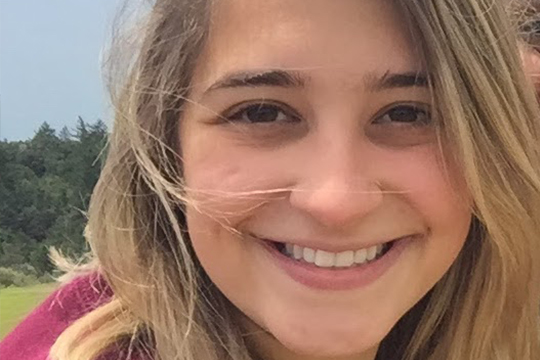
Capable
By Sophia Laurenzi, ’17 (Psychology)
At the end of the graduation lunch for the Hope House Scholars Program, a woman from Hope House thanked the teaching team for treating her without judgment and with the sense that she is capable.
Through tutoring at Hope House, a residential recovery program that women are often court-mandated to, and volunteering with The Last Mile, a start-up that teaches coding and professional skills to incarcerated individuals, I have worked with dozens of people who society sees as incapable–incapable of learning, of changing, of redemption. It has been the deepest joy of my time at Stanford to witness those involved with the criminal justice system shift from seeing themselves as incapable to capable.
The smallest moments can instill this confidence; learning a dance step in the Cardinal Service Dance in Prison course, writing a topic sentence, sharing a thought in a group discussion. These experiences have taught me that it is not ethical or even possible to try to “change” individuals in the criminal justice system. It is possible, and beautiful, to build relationships, environments, and skills that support others to tap into the universal human potential for change within themselves.
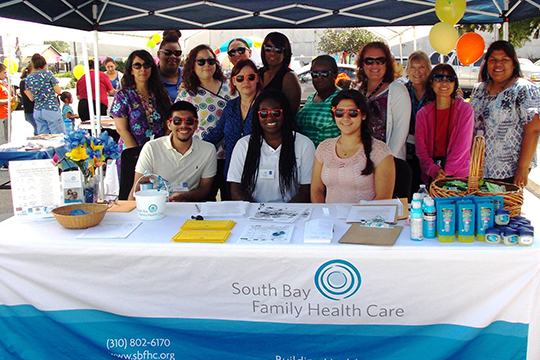
Health resources for families in need
By Miguel Ceniceros, ’19 (Human Biology)
As a woman got her blood pressure checked, her young daughter ran up to my table and smiled wide as she pointed at one of the coveted balloons we were handing out at South Bay Family Healthcare’s National Health Center Week Health Fair. I handed her one, and she ran to the next table to learn about the importance of brushing her teeth.
In the summer of 2016, I had the opportunity to volunteer with South Bay Family Health Center, engaging with community members and health providers. I learned about inequities in women’s and children’s health, and the efforts of health providers to bridge these gaps.
To say that South Bay Family Healthcare is just a health center is an egregious understatement. This organization, with its wonderful and dedicated staff, provides relief and resources to hundreds of families who would otherwise have little or no healthcare available to them. The caring staff taught about the value of teamwork, and the importance of advocating for those who need and ask for help. I am honored to have worked with an organization dedicated to the health and well being of the community.
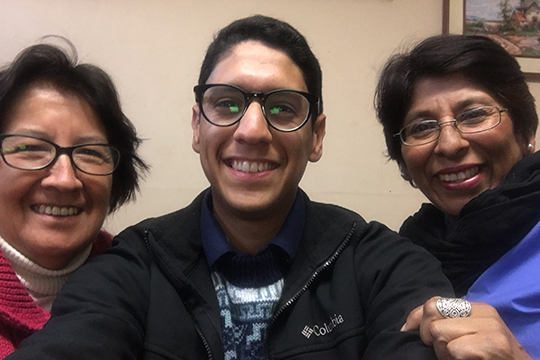
Research + community engagement
By Christopher Rodriguez, ’17 (Human Biology)
Pale wisps of steam flutter and twirl above the cup of tea on the table before me. The living room is narrow; the floor is rough, faded; the chairs feel like boulders. Sunlight scarcely saunters in through the window.
Beside me, Lilia Perez speaks in a soft cadence. She is the director of a branch of Samusocial Peru located in the secluded district of Ate-Vitarte, and my community partner. Lilia comforts a woman who holds back tears. She reminds me that most of these women are not normally granted the opportunity to disclose their abuse experiences.
This past summer, my goal was to better understand the resources that survivors of violence against women in suburban Peru find most useful to facilitating their social reintegration. The Public Service Scholars Program at Stanford has offered me the avenue through which to intersect scholarly research with community engagement.
Interviewing survivors of interpersonal violence was not easy. When they were not hesitant to share their stories, they delivered years of silent suffering in a flurry of crackling words. But as painful as it was to hear these stories, I do not forget how meaningful this research is.
The Public Service Scholars Program is a year-round program that supports students’ efforts to write a thesis that is academically rigorous as well as informed by and useful to specific community organizations or public interest constituencies.
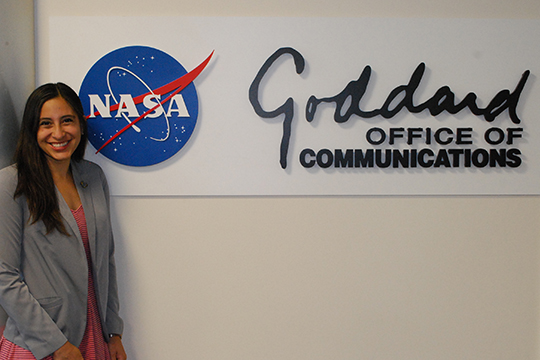
Engaging new audiences
By Patricia Flores, ’18 (Communication)
After my first day at NASA Goddard Space Flight Center in Greenbelt, Maryland, I felt like I was in way over my head. I wasn’t a STEM major, so how was I expected to write and create content about highly technical science information? Additionally, how could I approach my work through an angle that made me feel like I was making some sort of impact?
With the help of mentors and by not being afraid to ask questions—even ones that seem extremely basic—I discovered that I could find the way in which my work for NASA Goddard felt meaningful to me. Specifically, the projects I worked on to increase NASA’s Spanish outreach were very fulfilling. I had the opportunity to interview three amazing and incredibly intelligent Latinx engineers about their research and write feature-length profiles on each of them in Spanish. I translated outreach material, did voice-overs for mission videos, and crafted some tweets for our @NASA_es Twitter page. At the end of the summer, it was so rewarding to know that my work distilled very technical information on extremely relevant science topics to an audience that normally doesn’t engage in these spaces.
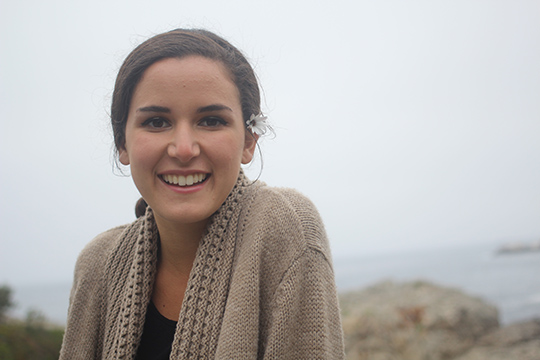
Words matter
By Marly Carlisle, ’17 (Political Science)
“People are homeless – they’re not ‘homeless people.’” Tod Lipka, the Executive Director of one of the largest homeless service providers in Los Angeles, said this at a panel I moderated titled “Abolishing Homelessness: It’s Not How, It’s When.” He was emphasizing the critical importance of highlighting a person’s humanity when speaking about homelessness. I think about homelessness on a daily basis – I wrote my thesis about it, I teach a course about it, and I serve on the board of directors of a homeless service provider. When discussing the issue of homelessness, it is easier to think about people who are homeless as abstract numbers and statistics, rather than considering their individual humanity. The mindful practice of saying “people who are homeless” instead of “homeless people” reemphasizes the individual experience of homelessness. It reminds me that “they” are “us,” but with different life circumstances. They are our neighbors, our community members, our fellow citizens. Us. I’ve moved away from “the homeless” and “homeless people,” opting for a more personal, human approach when discussing homelessness.
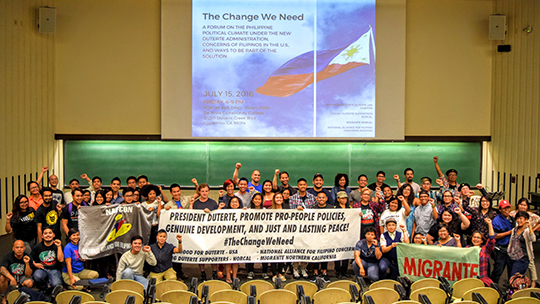
Becoming part of the neighborhood
By Ian Macato, ’19 (Symbolic Systems)
The Filipino Community Center in the Excelsior neighborhood of San Francisco serves to provide a safe space where Filipino families can access services, meet, and hold activities. The Excelsior neighborhood has the second highest population of Filipino/a people in San Francisco, and they are mostly low-income, working class immigrants. As true community members, we organize with partner grassroots organizations striving to fix the root causes of unemployment, unaffordable housing, and poverty in the neighborhood and in the Philippines. The center’s purpose is ordinary, helping community members to access government services and benefits. But serving as an intern at the FCC means to become a part of the Excelsior neighborhood and immerse oneself in the stories, experiences, and lives of the community members we serve. Through learning how to serve our kababayans (the Tagalog word for fellow compatriots), by helping them to get their much deserved government benefits, we also become their friends, counselors, and community members. We take part in their story and empathize with their struggle, knowing ours is interconnected.
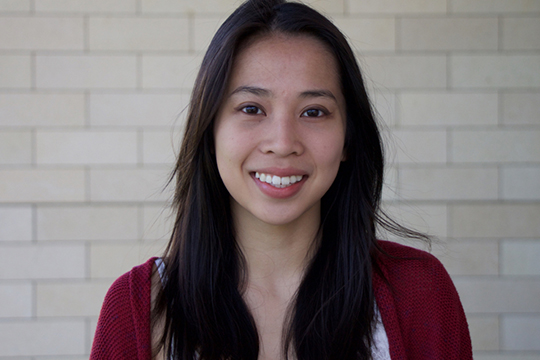
Living sustainably
By Thazin, ’15 (Electrical Engineering), MS ’16 (Sustainable Design and Construction)
Starting the day off with a nice morning jog, I arrive early at the Union of Concerned Scientists’ (UCS) headquarters in Cambridge, Massachusetts. After I’m done with a quick shower, more UCSers trickle in, many of whom took the subway or bus or biked over from various parts of the Greater Boston Area. For these clean energy warriors, the commitment to a sustainable planet starts even before the official work day begins.
As a Schneider Fellow, I had my own humble part to play at UCS. With the Climate and Energy team, I wrote reports on how community solar works and how the business models for electric utilities are evolving. While these topics may seem unrelated, they are both important pieces for enabling greater penetration of renewable energy from the different sides of the electricity meter.
The crucial lesson I learned that summer, however, was how those at UCS modeled hard work and integrity.
From informing the public with editorials to advocating for policy changes based on facts and rigorous analyses, every member of UCS worked relentlessly to fight for a healthier, safer world. As I enter the solar industry post-graduation, I will continue to do the same!
Schneider Fellows work at leading U.S. nongovernmental organizations (NGOs) to tackle today’s sustainable energy challenges.
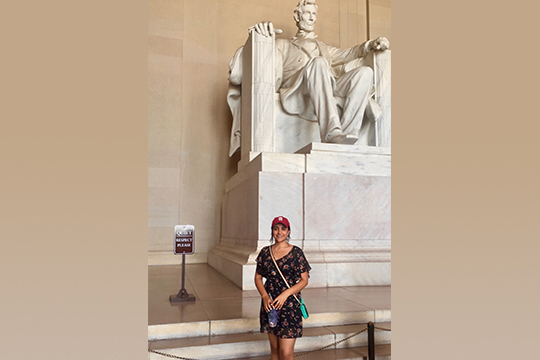
Advocating for responsible energy use
By Sadaf Sobhani, B.S./M.S. ’15; PhD Candidate
I spent last summer in Washington, DC working as an intern at the Energy Future Coalition, an initiative of the United Nations Foundation (UNF). As a PhD student in Mechanical Engineering, I work on developing computational tools to investigate alternative combustion systems. I spend most days writing code or discussing the technical details of my research. So the transition to Pennsylvania Ave was dramatic. Just the walk from the Farragut North station to my UNF office, located between the White House and the World Bank, was enough to remind me of the incredible opportunity I was given to work in the nation’s capital.
During the summer, I was involved with the Clean Fuels campaign, which calls attention to the epidemiological and environmental risks associated with the combustion of aromatic compounds in fuels. With my background in combustion science and engineering, I was able to contribute to the team’s efforts by translating the current scientific research into a comprehensive white page on the sources and potential impacts of emissions from automobiles, focusing on the influences of specific gasoline components and ethanol-gasoline blending. My work aimed to give insight into potential technical and policy responses to this issue. Through this experience, I gained a deeper appreciation for the complex processes involved in developing and implementing policies that advance us towards a more sustainable and cleaner energy future, a journey that I want to be actively involved in – both as a scientist and an advocate.
Schneider Fellows work at leading U.S. nongovernmental organizations (NGOs) to tackle today’s sustainable energy challenges.
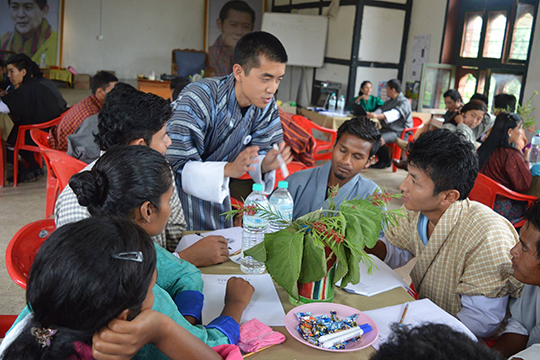
Investing in Bhutan’s youth
By Tim Huang, ’14 (B.A. Human Biology; M.A. Education)
I was drawn to the Himalayan Kingdom of Bhutan because of my interest in how the young democracy in transition was thinking differently about sustainable development and the well-being of its people. Thanks to a Haas summer fellowship, I spent two consecutive summers in college implementing a youth employment project with a local nonprofit, the Bhutan Youth Development Fund. After graduating from Stanford, I returned to Bhutan through the Omidyar Network International Public Service Fellowship, one of the Haas Center’s postgraduate fellowships. During my fellowship year, I worked to strengthen educational equity as a researcher for the Royal Academy, His Majesty the King’s Secretariat. I have since served as a Program Officer at the Bhutan Youth Development Fund, organizing child protection and youth empowerment programs with partners like UNICEF. Over the last 3 years, working in Bhutan has reinforced my belief that investing in the promise of our children and youth creates a more just and sustainable world.
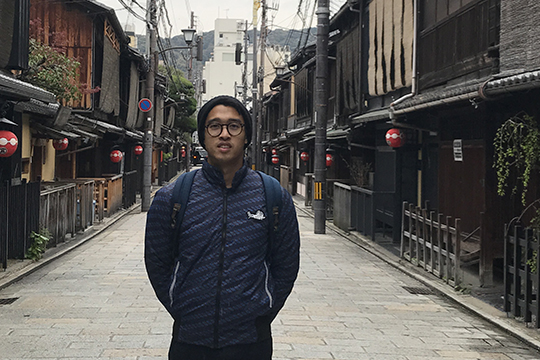
Complex, messy – and rewarding
 By Paricha Duangtaweesub, MS ’15 (Chemical Engineering)
By Paricha Duangtaweesub, MS ’15 (Chemical Engineering)
“What do you want to do after school?”
I rapidly became familiar with this question during my graduate studies, and soon I found myself responding with one version or another of the same response: “I want to apply what I learned to make an impact in renewable energy.”
I was a naïve student of chemical engineering then, cherry-picking engineering classes in renewable energy, crossing over to the GSB and d.school to round out my education. I thought social impact work would be straightforward and well defined, with the benefits as measurable as my grades or the applause after presentations. Did I mention I was naïve?
With much excitement, I accepted a summer Schneider Fellowship at the Natural Resources Defense Council in San Francisco right after graduation where I contributed to advocacy work in energy efficiency policy in California and India. Between studying technical potential of bio gas, writing comments to an ordinance proposed by the City of Palo Alto, and preparing a case study of building codes for Hyderabad, the learning experience was both challenging and rewarding.
I found that systems of people can be far more complex than any mathematical models taught in class. It is imperative that we understand the different needs of the stakeholders within the system that we promised to help – city residents, politicians, business owners, and government agencies – as well as the environment. As an engineer, I learned an important lesson: that technical knowledge is only part of the answer.
Schneider Fellows work at leading U.S. nongovernmental organizations (NGOs) to tackle today’s sustainable energy challenges.
